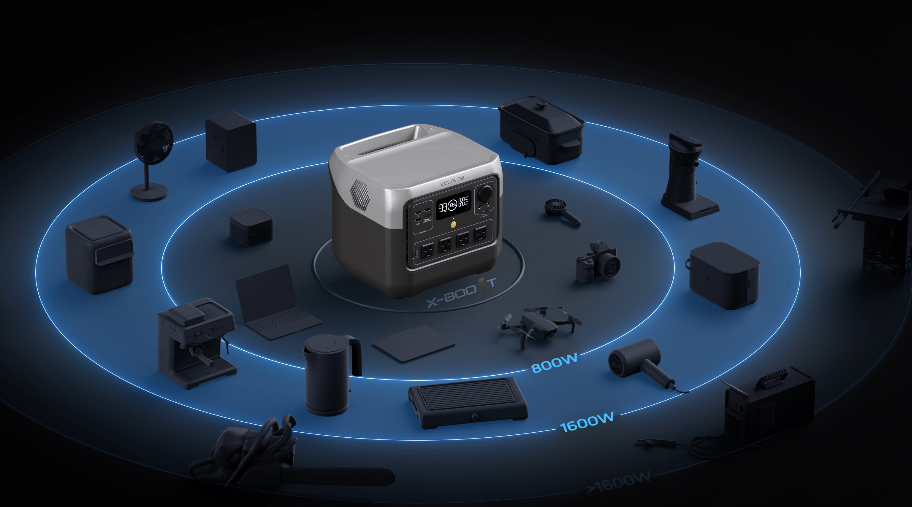Are Diesel Generators Quieter Than Gas? A Comprehensive Noise Comparison
- Decoding Generator Noise: What Those Decibels Really Mean
- Diesel Generator Noise Profile: The Low-Frequency Rumble
- Gas Generator Noise Profile: The High-Pitched Whine
- Direct Comparison: Which Generator Type Is Actually Quieter?
- Key Factors That Influence Generator Noise Levels
- Practical Noise Reduction Strategies for Any Generator
- Get a Quieter Generator Setup
Generators can be noisy during camping, construction, or power outages. When picking between diesel and gas generators, how loud they are is often a big deal. If you're in a neighborhood or camping, a quiet generator can make things much better for everyone. This article looks at whether gas or diesel generators are quieter and what makes them noisy.
Decoding Generator Noise: What Those Decibels Really Mean
Generator noise isn't just about volume—it's about how we perceive it. Decibels (dB) measure sound intensity on a logarithmic scale, meaning small numerical increases represent significant jumps in perceived loudness. For context, normal conversation typically registers around 60 dB, while a busy street might reach 70-80 dB.
What makes this measurement tricky is that a 10 dB increase represents sound that seems twice as loud to human ears. This explains why even small differences in generator specifications matter significantly in real-world use. A generator rated at 65 dB will seem about half as loud as one rated at 75 dB, even though the numbers might appear close.
Sound frequency also affects our perception. Diesel generators generally produce lower-frequency sounds—those deep rumbles that can travel through walls and windows. Gas generators often emit higher-pitched noises that, while sometimes measuring lower on the decibel scale, might actually feel more irritating to human ears.
Of course, for those concerned about noise pollution, portable solar generators paired with solar panels, like the Ecoflow River 2 Max with its compatible 160W Portable Solar Panel, offer a completely silent alternative to traditional fuel generators while providing clean energy.


Diesel Generator Noise Profile: The Low-Frequency Rumble
Diesel generators are known for being loud. They usually make between 70 and 85 decibels of noise when measured from 23 feet away. That's about as loud as a vacuum cleaner or a busy restaurant.
Diesel engines sound different because of how they start. Unlike gas engines, they don't use spark plugs. Instead, they squeeze air really hard, which makes it hot enough to burn the fuel when it's injected. This squeezing makes the deep rumbling sound that diesel engines are known for.
Several factors influence how loud a diesel generator will be:
Size matters: Larger diesel generators (typically above 20kW) generally produce more noise due to bigger engines and more fuel being combusted.
Engine speed: Diesel generators running at 1800 RPM are typically quieter than those operating at 3600 RPM.
Cooling systems: The fans required to cool larger diesel units contribute significantly to overall noise output.
Load level: Diesel generators often run quieter at full load than when idling or under partial load.
The sound signature of diesel generators tends toward lower frequencies. This bass-heavy profile means the noise can travel farther and penetrate buildings more easily than higher-pitched sounds. However, this same quality makes diesel noise easier to muffle with certain soundproofing materials.
Gas Generator Noise Profile: The High-Pitched Whine
Gas generators typically produce noise levels ranging from 60-75 dB at the same 23-foot measurement distance. This represents a noticeable difference compared to most diesel alternatives.
Gasoline engines use spark ignition, where a spark plug ignites a compressed mixture of air and fuel. This combustion process creates a different sound character—typically higher-pitched and less rumbly than diesel engines.
Modern gas generators, particularly those using inverter technology, have made significant strides in noise reduction. These units adjust engine speed based on power demand rather than running at constant RPM, resulting in quieter operation during lighter loads.
The noise profile of gas generators includes:
Higher-frequency sounds that don't travel as far but can seem more penetrating up close
More variable noise levels depending on load
Often lighter weight components that may create more vibration-related noise
Typically smaller mufflers that don't dampen sound as effectively as larger diesel units
Gas generators used for recreational purposes or as home backup systems are often designed with noise reduction as a priority, featuring enhanced insulation and specialized mufflers.
Direct Comparison: Which Generator Type Is Actually Quieter?
The short answer? Gas generators are typically quieter than diesel. Most gas models run at 60-75 dB while comparable diesel units operate louder at 70-85 dB. This noise difference becomes especially noticeable in smaller portable generators. You'll definitely hear it when camping or during a neighborhood power outage. That said, the real-world situation isn't quite so black and white:
For small portable generators (under 5kW), the difference is most pronounced. Gas generators in this category often register 5-10 dB quieter than comparable diesel units, representing a significant real-world difference in perceived loudness.
The gap narrows considerably in the medium range (5-20kW). Well-designed diesel generators with sound-attenuating enclosures may approach the noise levels of standard gas generators.
For large industrial generators (above 20kW), diesel units dominate the market, making direct comparisons difficult. However, these larger diesel generators often feature extensive noise-reduction engineering.
The typical sound character differs substantially between types. Gas generators produce a higher-pitched sound that might seem less intrusive from a distance but more annoying up close. Diesel generators create a deeper rumble that travels farther but might be less distracting when properly enclosed.
For noise-sensitive environments like campgrounds or residential neighborhoods, many outdoor enthusiasts now opt for solar-powered alternatives. The Ecoflow River 2 Max paired with its 160W Portable Solar Panel offers completely silent operation while providing enough power for essential devices during outdoor adventures.


Key Factors That Influence Generator Noise Levels
Understanding what affects generator noise helps explain why straightforward comparisons can be misleading:
Engine Design and Components
The fundamental design difference between compression ignition (diesel) and spark ignition (gas) creates distinct baseline sound profiles. Additionally, component quality significantly impacts noise—precision-machined parts with tighter tolerances produce less vibration and noise.
Enclosure Type
Many generators come with sound-attenuating enclosures that can reduce noise by 10-25 dB. These enclosures typically work better on diesel generators because the lower-frequency sounds are easier to block with mass-loaded barriers.
Load and Operating Conditions
Both generator types produce different noise levels depending on load:
- Gas generators typically run loudest at full load
- Diesel generators often run loudest when idling or at very low loads
- Ambient temperature affects cooling fan operation, which contributes significantly to noise
Maintenance Status
Poorly maintained generators of either type will produce more noise. Loose components, worn bearings, inadequate lubrication, and carbon buildup all increase vibration and noise output.
Practical Noise Reduction Strategies for Any Generator
No matter which generator type you choose, several proven methods can reduce noise impact:
Distance Helps
The farther away the generator is, the quieter it will seem. Sound gets quieter the farther it travels. If you double the distance, the noise drops by about 6 decibels.
Use Barriers to Block and Redirect Sound
Create barriers using plywood, sound-absorbing blankets, or commercial soundproofing materials. Most effective are multi-layer solutions that combine mass (to block low frequencies) with dampening materials (to absorb high frequencies).
Use Anti-Vibration Mounts
Rubber feet or specialized vibration isolation mounts can prevent vibrations from transferring to hard surfaces, which otherwise amplify noise.
Upgrades Muffler
Aftermarket mufflers can significantly reduce exhaust noise—often the loudest component of generator sound. Larger mufflers with multiple chambers generally perform better than stock options.
DIY Sound Enclosures
For smaller generators, building a ventilated enclosure with sound-absorbing interior can reduce noise by 10+ dB. Crucial considerations include:
- Adequate airflow for cooling and combustion
- Exhaust venting away from the enclosure
- Fire-resistant materials
- Access for refueling and maintenance
Consider Noise-Free Alternatives
If gas generators are still too loud, solar generators are a completely silent alternative. For example, the Ecoflow River 2 Max paired with a 160W portable solar panel makes noise a non-issue. Plus, you get zero emissions, no fuel costs, and it's safe to use indoors.
Get a Quieter Generator Setup
You can usually make most generators—gas or diesel—quieter by picking the right one and setting it up well. Smaller gas generators tend to be less noisy. Diesel generators often last longer and are more fuel-efficient, but they can be louder. Put it in the right place, cover it properly, and keep up with maintenance to reduce the noise, no matter what type you choose.
Tips
For press requests or interview opportunities, reach out to our media team
media.na@ecoflow.com